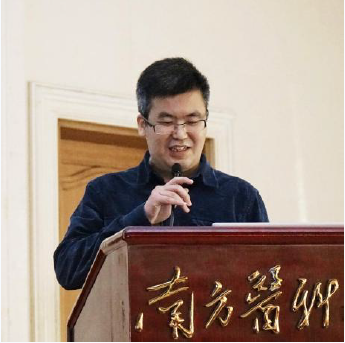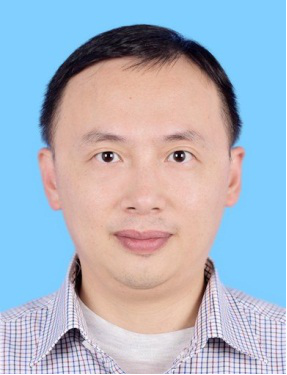Symposium: Managing Zoonotic Infections in the era of One Health
2019-10-161911Date:16th October 2019
Venue:5th floor meeting room, State-Key Laboratory of Respiratory Disease, Building 16, Guangzhou Medical University (151, Dongfengxi Road, Yuexiu District)
Time:9am–12.40pm (Seminar) and 2–5pm (Technical Workshop)
Abstract
Many existing and emerging infectious disease of concern have a zoonotic counterpart. The “One Health” concept was proposed and recognized by World Health Organization (WHO) as an interdisciplinary and collaborative framework to manage zoonotic diseases to achieve better health outcomes. Central to this theme is also having the right tools and expertise to monitor transmission chains and understand disease progressions. This mini-symposium aims to present the work of leading scientists on emerging and existing zoonotic infections and the tools we have to monitor and study such diseases. There will be two components: a seminar series that will discuss basic research on emerging zoonotic infections, and a technical workshop that provides hands-on training on molecular epidemiology.
备受关注的许多现有和新发的传染病都属于人畜共患疾病。世界卫生组织提出了“One Health”的概念,将其作为一个跨学科合作的框架用于应对人畜共患疾病,以期达到更好的健康效果。这一主题的核心还在于拥有正确的工具和专业知识来监测传播链和了解疾病进展。本次研讨会旨在介绍前沿科学家在现有和新发人畜共患传染病方面的工作以及展示检测和研究该类疾病的方法。研讨会将分为两部分:第一部分是关于新发人畜共患传染病基础研究的学术研讨会,第二部分是关于分子流行病学的实践操作培训。
Seminar series:(9–12.40pm)
Speakers:
Choi Youngki,Chungbuk National University, South Korea (Keynote)- Ferret animal model for Severe Fever with Thrombocytopenia Syndrome Phlebovirus (SFTSV) infections that recapitulates human clinical manifestations and human to human transmission
Zhao Jincun,State Key Laboratory of Respiratory Disease- Applications of T cell analysis in MERS diagnosis and prognosis
Mariette Ducatez,École Nationale Vétérinaire de Toulouse- Surveillance and pathogenesis of the recently identified influenza D virus
Shi Mang,Sun-Yat Sen University- Discovery and characterization of zoonotic pathogens using next-generation sequencing
Yang Zifeng,Guangzhou Institute of Respiratory Health- Good protocol and practice: how we optimized and learned from human avian influenza cases
Yu Guangchuang,Southern Medical University- Data integration and visualization of phylogenetic trees
Technical session (2-5pm) (Registration required)
Mariette Ducatez
Molecular epidemiology in a one health context
Mariette Ducatez, École Nationale Vétérinaire de Toulouse:
"This class covers the benefits of molecular characterization of influenza viruses with examples. We will first go through molecular epidemiology of influenza viruses to assess their origin and evolution. The second part of the lecture will focus on pandemic H1N1 2009 influenza viruses and their co-circulating counterparts in human and swine. We will finally discuss highly pathogenic avian influenza H5N1 viruses and pandemic preparedness."
Afternoon hands-on session:
A hands-on class in a small group (please bring your own computer and raw Sanger sequences if you have any you would like to work on) on basic sequences analysis and phylogeny. The class will focus on (i) downloading sequences from public databases, (ii) blast searches, (iii) Sanger sequences analyzing (/cleaning), (iv) aligning sequences with several algorithms, (v) defining the best tree model for a given dataset, (vi) drawing and analyzing phylogenetic trees.
Registration for the technical session:
Please email your name, institution, profession and research area to zoonoticinfections@163.com. Places will be allocated on a first-come-first-served basis.
Speakers Bio
Keynote Speaker: Prof. Choi Young Ki, Chungbuk National University, South Korea

Professor Choi runs a successful research program focusing on surveillance, pathogenesis and vaccine development against emerging infectious viruses, particularly zoonotic influenza viruses, at the College of Medicine and Medical Research at the Chungbuk National University. He received his Doctorate and MSc in Veterinary Medicine from Chungnam University, Korea and his PhD from University of Minnesota. He has over 130 publications in major journals such as Nature Microbiology, Nature Communications, PNAS, Clinical Infectious Disease, Eurosurveillance, Journal of Virology on different viruses such as influenza, MERS, enterovirus 71 and others. He has recently developed the animal model and DNA vaccine for the emerging tick-borne virus Severe Fever with Thrombocytopenia Syndrome Phlebovirus (SFTSV) that was published in Nature Microbiology and Nature Communications.
Prof. Zhao Jincun

Prof. Zhao is a Professor of Guangzhou Medical Universiry and also the Deputy Director of State-Key Laboratory of Respiratory Disease. He received his Ph.D. in Immunology at Peking University in 2007 and then he went to University of Iowa for his postdoc training. In 2015, He returned to GRIH in Guangzhou and set up his own lab.
His research is focusing on viral pathogenesis, immune responses and through which he will develop vaccines and therapeutic antibodies against emerging respiratory virus infections. He published more than 50 papers that were cited over 1500 times, including Immunity, Sci Immunol, JCI, PNAS, Plos Pathog and JV.
Dr. Mariette Ducatez

Dr. Ducatez is the senior investigator at the Ecole Nationale Vétérinaire de Toulouse (National Veterinary School of Toulouse) where she joined in 2012 after completing her post-doctoral training with Dr. Richard Webby at St. Jude’s Children’s Research Hospital. Dr. Ducatez received her PhD from University Henri Poincaré, Nancy, France; for her work on the global evolution of avian viruses done at the Institute of Immunology, Laboratoire National de Santé, Luxembourg.
Dr. Ducatez’s research focuses on understanding the pathogenesis and risks of zoonotic influenza viruses, particularly of the newly discovered bovine associated Influenza D virus. She currently leads several research programs to study the eco-epidemiology and risks of zoonotic influenza viruses in Africa and Europe. She will also be conducting the practical class on molecular epidemiology for the mini-symposium.
Prof. Shi Mang

Prior to joining Sun Yat-sen University, he is a senior research associate at the University of Sydney. He is also an adjunct faculty at Shanghai Public Health Clinical Centre and before that he is an ORISE fellow and Guest researcher at the US CDC. Mang received his undergraduate and Mphil degree from the University of Hong Kong and his Ph.D. from the University of Sydney.
Mang is a Professor at Sun Yat-sen University. Prior to joining Sun Yat-sen University, he is a senior research associate at the University of Sydney. He is also an adjunct faculty at Shanghai Public Health Clinical Centre and before that he is an ORISE fellow and Guest researcher at the US CDC. Mang received his undergraduate and Mphil degree from the University of Hong Kong and his Ph.D. from the University of Sydney.
Mang’s research is mainly focused on evolutionary history and ecological dynamics of RNA viruses. His work uses genomics, metagenomics, and meta-transcriptomics tools for virus discovery and characterization, based on which he has re-defined the diversity and evolutionary history of the RNA virosphere. Currently he is interested in using the same approaches to reveal the interaction between virome, microbiome, and hosts within an infected individual.
Prof. Yu Guangchuang

Dr. Yu is a currently a Professor of Bioinformatics as well as the Associate director of Institute of Bioinformatics at the Southern Medical University. He received his PhD in Bioinformatics from The University of Hong Kong, where he continued his work as a postdoctoral fellow prior to returning to Guangzhou. He has developed more than 20 R packages, including clusterProfiler, ChIPseeker, treeio and ggtree to help biologists explore and understand their data. His work has been cited for over 3500 times and he contributes frequently to the bioinformatics community.
He is broadly interested in bioinformatics, metagenomics, molecular evolution, data integration and visualization.
Prof. Yang Zifeng

Dr Yang serves as a PI in clinical viral research at Guangzhou Institute of Respiratory Health of Guangzhou Medical University as well as the Co-Executive Director of the Viral Diagnosis and R&D Center of GIRH – KingMed Diagnostics. He received his B.S. degree in Clinical Medicine from Guangzhou Medical College, China and his M.S. degree in Integration of traditional Chinese and Western medicine from Guangzhou University of Traditional Chinese Medicine. He subsequently received his Ph.D. degree in the same major from Macau University of Science and Technology (MUST), China Macau SAR, in 2013. Prof. Yang’s research interest is in improving diagnostics and developing therapeutics, including using traditional Chinese medicine for respiratory infections. He has published more than 50 high impact papers in peer-reviewed SCI journals such as New England journal of Medicine and Science etc. and have been authorized with 6 patents and awarded the Chinese Patent Award of Excellence and the Second Prize of Macao Science and Technology Invention Award , and participated in the formulation of guidelines for the diagnosis and treatment of Influenza. He was recently awarded the First Prize in Guangdong Science and Technology Progress for his clinical work with human avian influenza cases.
呼吸疾病国家重点实验室
广州呼吸健康研究院
国家呼吸系统疾病临床医学研究中心
广州医科大学附属第一医院
2019年10月9日



















